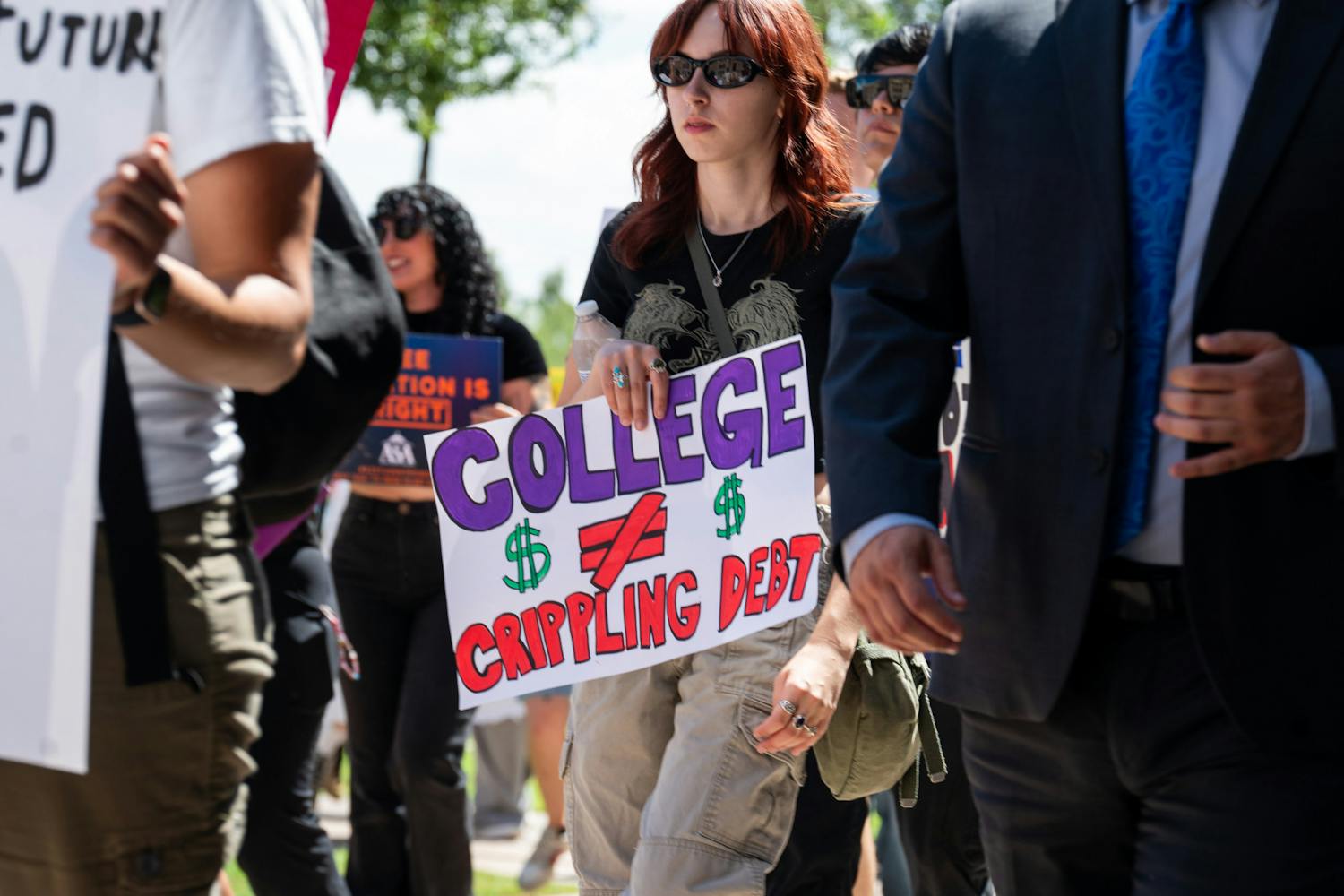As podcasting has caught the attention of listeners across America, college students entering quarantine this spring were no exception, some of them starting their own shows as a new hobby during the pandemic.
In 2006, only 22% of the U.S. adult population knew what podcasts were, according to Statista. Fast forward 2020 and that number has jumped to 75%.
Elsa Schacht, a senior studying English, hosts a podcast called "Get Real" with two other ASU students, Taj Nadesan and Garrett Stanley. On the show, the group of friends discusses both classic and current reality TV shows like Love Island, Long Island Medium and Big Brother.
"We were already watching and talking about a few shows," Schacht said. "So it seemed natural to transition into the podcast."
As full-time students, it can often be difficult to find a good chunk of time to record and release episodes, Schacht said.
"We do record multiple episodes a week," Schacht said. "It's kind of nice that we're still a little small, so if we need to push recording back a little bit it's fine."
Another challenge can be the distribution of podcasts to all the major platforms such as Spotify and Apple Podcasts. Schacht and her co-hosts use the same method as Lauren Newkirk, a senior studying accountancy and co-host of the "Coworker Chronicles" podcast with her coworker Adam Lover.
"We use Anchor to distribute and upload our podcast," Newkirk said. "We're on all the major, well-known platforms now."
Anchor is a podcasting platform that is home to thousands of beginner hosts. It allows you to listen to other people's podcasts as well as record, edit and distribute your own all for free — a particular point of interest for college students.
While Schacht's podcast centers around a pop culture, Newkirk's is more personal.
"My coworker and I were at an event one day pretending to be sports announcers, so we decided to try this," Newkirk said. "It's been a lot of fun, we just tell stories about work and have conversations with our coworkers."
Both Newkirk and Schacht recommend other students start their own podcasts, even if only for the fun of it.
"It's been nice to have a set time to decompress every week," Schacht said. "It's a good way to spend time with my friends, especially since I'm at home in Minnesota right now."
Especially amid the pandemic, it isn't always easy to stay connected, so listening to podcasts can provide a certain level of comfort to both the host and the listener, Newkirk said.
"It's kind of like a diary," Newkirk said. "We get to talk about the fun things we do at work and not just see our coworkers at work, which is nice."
Michael Baribault, a junior studying sports journalism, runs a sports podcast called "Baribault Banter," focusing on the MLB and featuring interviews with athletes from and around Sonoma, California.
"The most important thing is creating content around something you love," Baribault said. "For me, it was creating content around sports, which became a lot easier once they started coming back."
Baribault said it's important to cater to your audience in podcasts. He advised if people aren't as versed in the topic being discussed to stick to the basics so everyone can follow along.
"Most of the people I know are sports fans, so it was easy in the beginning," Baribault said. "As it's grown, there are people who tune in who aren't as avid of sports fans, so it's important to draw people in."
Schacht encourages others to continue to pursue their shows even if they don't "sound great in the beginning."
"We're still new and we've improved after just a couple of months at it, so definitely continue with it if you're starting one," Schacht said.
Schacht said though it took some time to get into the rhythm of podcasting, she enjoys being able to control the content the show produces and has regular listeners.
"I've heard from people who listen that their favorite thing is the group dynamic," Schacht said. "A lot of our show is just the chemistry that we have together."
Editor's note: Garrett Stanley is a reporter for State Press Magazine. Stanley did not contribute to the reporting or editing of this article.
Reach the reporter at skenoun@asu.edu or follow @thesabrinakeno on Twitter.
Like The State Press on Facebook and follow @statepress on Twitter.




